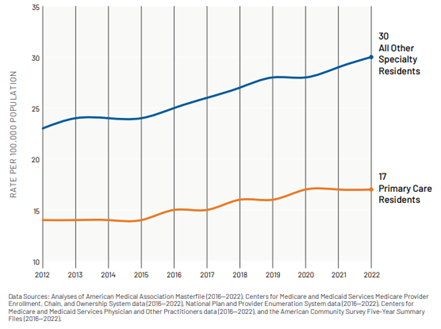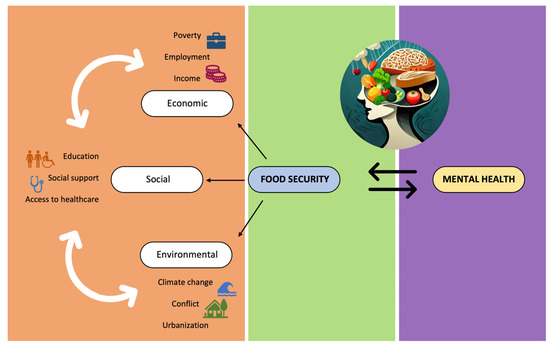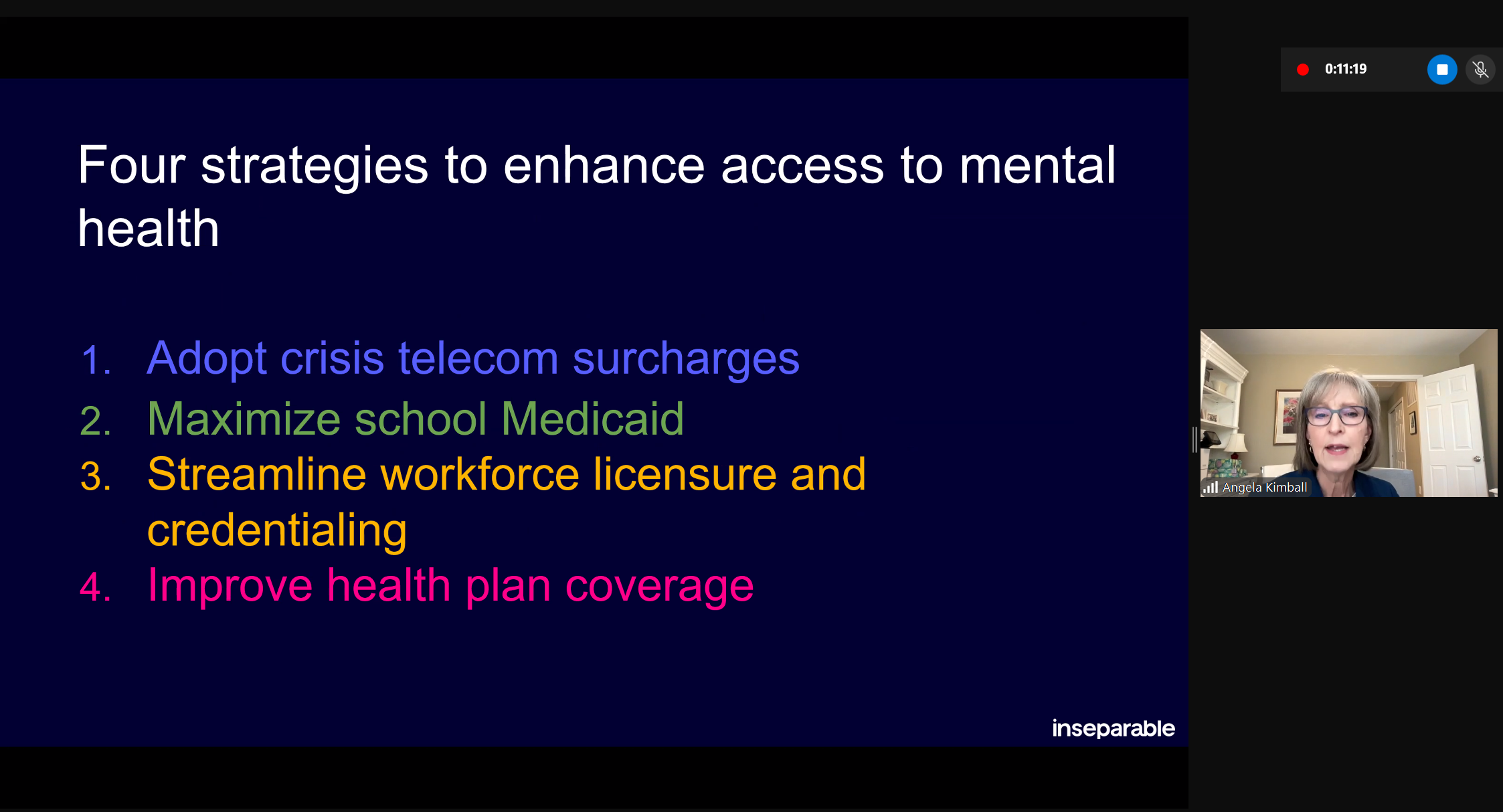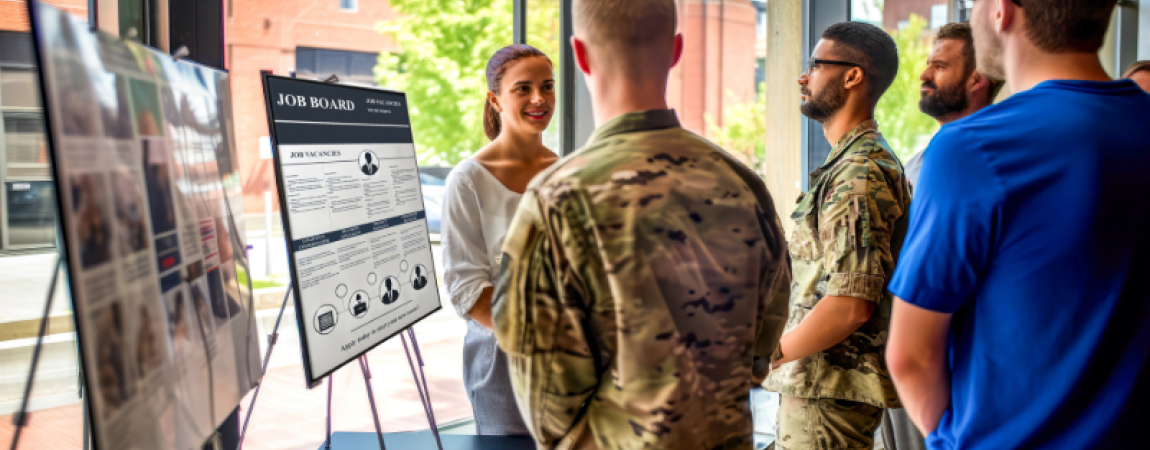The third panel discussion of the Let’s Get Ready! New York Convening featured Eva Moskowitz, founder and CEO of Success Academy Charter Schools, a public charter school network that manages over 50 schools, serving more than 20,000 students, and Noa Meyer, Board Chair at rootEd Alliance, which supports 225 schools and serves over 48,000 students by placing dedicated college and career advisors directly in rural high schools to work with all students. Themes from the panel included the need for better educational systems, the benefits of parentand family engagement and the importance of data-driven approaches.
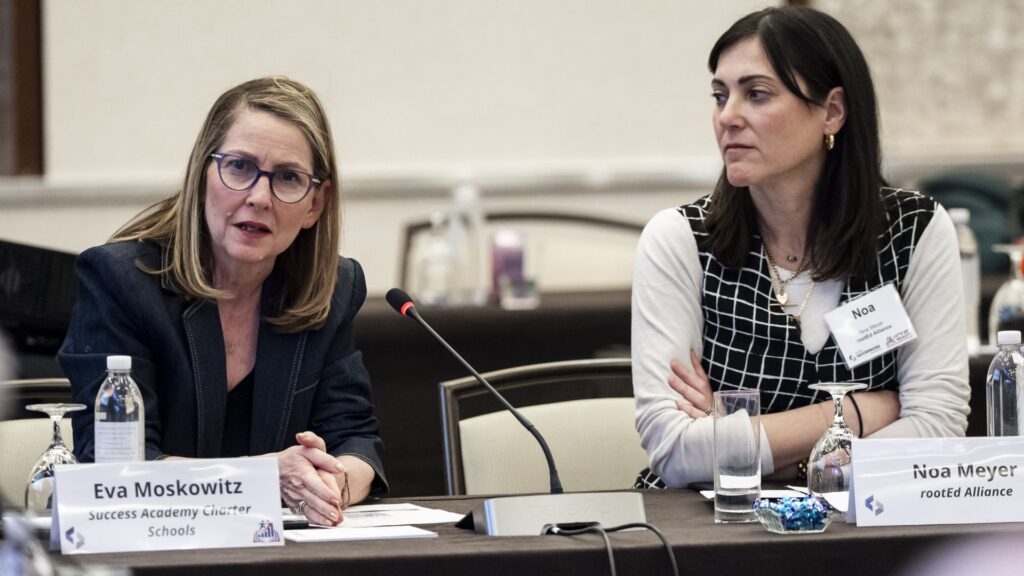
In her opening remarks, Eva Moskowitz called for a reimagining of public education and said the goal of Success Academy is to create a joyful environment with high levels of learning and accountability for educational outcomes. She also discussed the importance of a whole-child approach, including academics, music, dance, sports and coding, to achieve broad educational goals. The key to this, Moskowitz explained, is robust educator professional learning. Success Academy offers 13 weeks of teacher support, a program that is expanding nationally.
“Our goal is to have intellectually, self-confident and self-directed students who are well educated, and that broad goal can be accomplished not only through academics… we are really taking a whole child approach to the education of our students.”
Eva Moskowitz
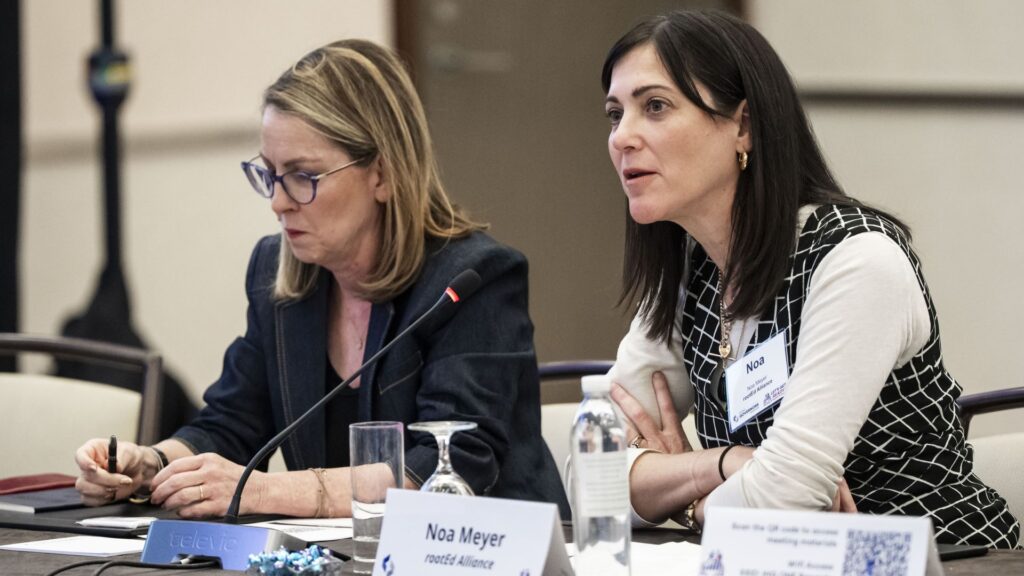
Noa Meyer introduced rootEd Alliance as a national nonprofit that works to address the unique challenges faced by rural communities, including poverty, homelessness, and drug addiction. Aiming to provide economic mobility through education, the organization has a whole school model, placing dedicated college and career advisors to work alongside guidance counselors to help students find the best fit for them post-graduation. The ultimate goal is to help every kid really understand what economic prospects there are for them and how those prospects are tied to educational opportunities.
“We as an organization are completely agnostic about what that best fit is, anything from military service all the way to four-year college works for us, and everything in between. But the idea and the goal is to have every kid have a plan A and a plan B when they graduate.”
Noa Meyer
Rhode Island Governor Dan McKee asked the panel what they would do to fix the educational system, with Moskowitz saying that there are multi-faceted solutions, including instructional and content improvements, with a key one being engaging parents in their children’s education—starting first with reducing chronic absenteeism, as well as monitoring homework completion, promptly responding to school requests, and showing up at events celebrating students’ achievements. Moskowitz then talked about the need for schools to inspire participation from parents and students and view them as customers from the school, not a captive audience. She noted that there is a basic foundation of love for learning that schools need to capitalize on.
New Jersey Governor Phil Murphy asked Noa Meyer about their model for choosing areas to operate in. Meyer highlighted the importance of public-private partnerships in rootEd’s success, using philanthropic dollars as risk capital to test out opportunities and different educational models, then partnering on successful models with government. They measure success through metrics such as increased college and career opportunities, job pursuits and higher persistence rates in higher education. Their advisors work to engage students and put them in training programs to help build stackable credentials and develop skills that promote economic mobility.

After a discussion on school infrastructure and teacher professional learning, NGA Chair Colorado Governor Jared Polis inquired about the metrics Governors should be focused for identifying student success. Moskowitz said that Success Academy looks at attendance, homework completion as a proxy for self-direct learning s, and standardized test scores. Meyer then discussed the unique challenges faced by rural communities, including the need for localized solutions and the importance of community engagement. Success Academy works to track metrics on their outreach efforts to help students explore career opportunities and identify training programs, including community involvement. She noted the importance of measuring outcomes beyond traditional metrics, such as job placement and economic mobility.
The meeting concluded with a lightening round discussion on the importance of public-private partnerships, enhancing data collection—particularly around non-degree credentials, and reducing educational paperwork while maintaining important data sources that are used by stakeholders across the educational spectrum. Watch the full session below, and bookmark the Let’s Get Ready! page for more information from the New York convening and updates about the initiative.







